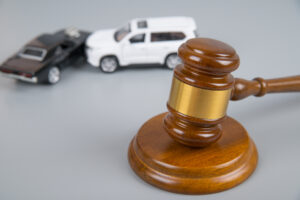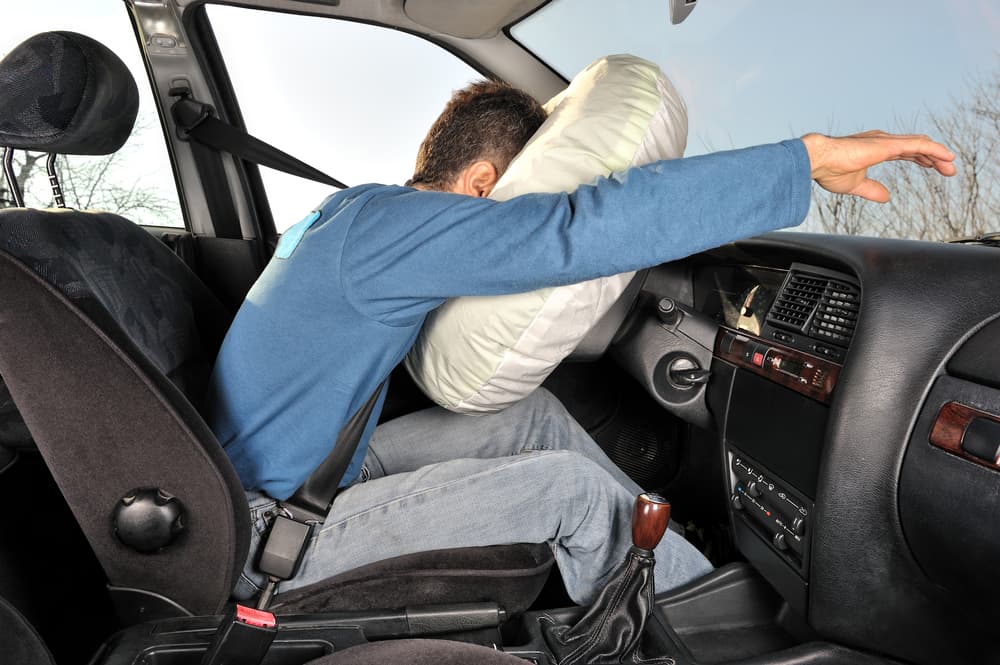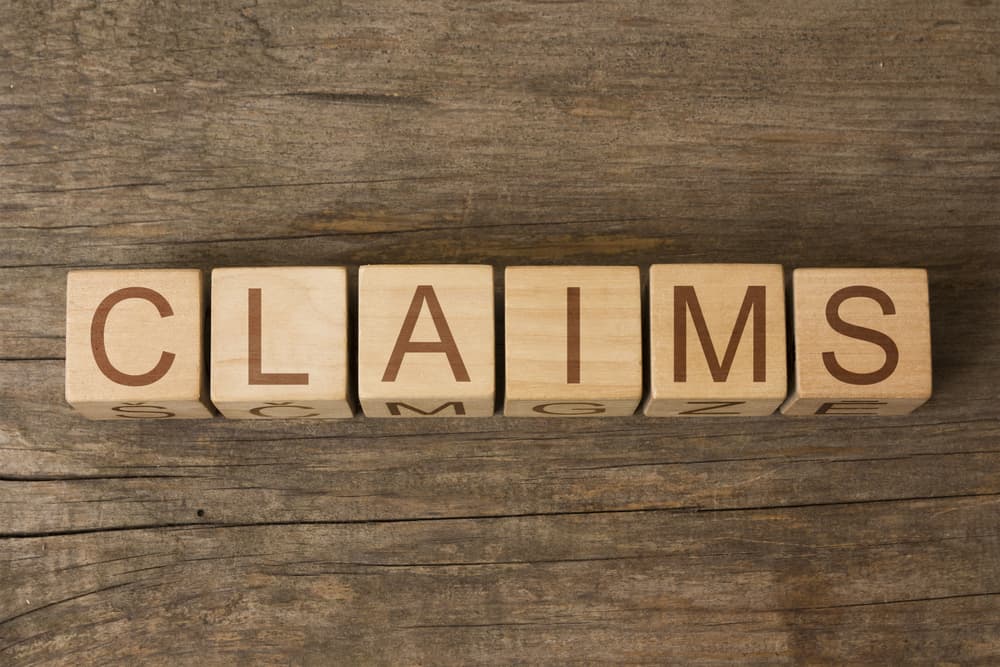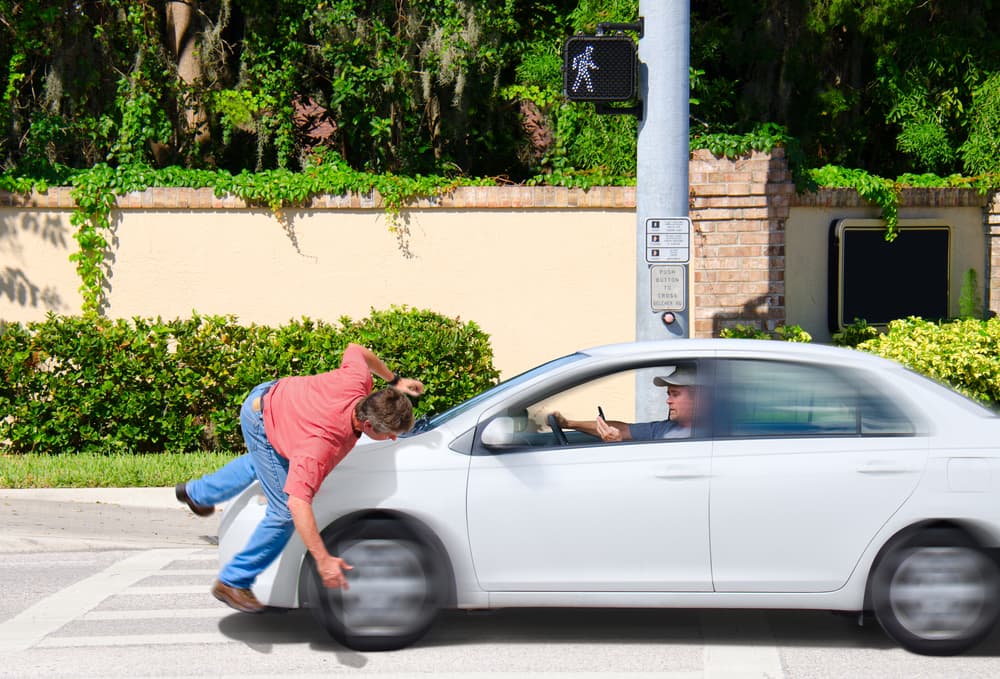Being in a car accident can be extremely confusing and overwhelming. Your vehicle may be left in disrepair, leaving you grappling with the challenge of getting around. In addition, you might be contending with injuries, trying to adapt to a new reality while juggling your day-to-day obligations amidst numerous doctor’s appointments.
Amidst all this, you may be facing the pressing question of whether you are eligible for compensation to cover your accident-related expenses.
Opting to take legal action against the parties involved in the accident can introduce further complexities. Personal injury lawsuits often entail procedures that may be entirely unfamiliar to you. Depending on your case’s unique circumstances, you may need to respond to interrogatories or participate in a deposition.
The claims process typically involves significant decisions that can affect the amount of compensation you stand to receive. You may need to weigh the potential benefits of settling your claim against the option of proceeding to trial.

The good news is that you don’t have to do this alone. In fact, it’s in your best interest to hire a skilled car accident lawyer in New Port Richey as soon as possible after being involved in an accident.
Your attorney can protect your rights, estimate your claim’s worth, and lead you through every step of the process. If you need to participate in a deposition, they will be there for you and in every part of the legal process afterward.
Overview of the Car Accident Claims Process
Typically, all car accident claims follow the same process, which can vary a bit depending on the laws of your state. Some claims settle early in the process while others last longer and make it to court. How long the process takes depends on individual circumstances. Here is an overview of the typical claims process.
Filing a Claim
If you haven’t filed a claim with the negligent driver’s insurance company, your car accident attorney will file it on your behalf. If you have, your lawyer will notify the insurance company that you now have representation for that claim.
From that point, the insurance company and adjuster assigned to your claim should contact your attorney with any questions or needs; they shouldn’t contact you directly once you have legal representation. If they do, it’s best not to speak to them but politely refer them to your attorney.
Claim Investigation
After the accident claim gets filed, the insurance carrier will begin investigating the accident to understand what happened, assess liability, and determine the total damages. Your lawyer will also launch their own investigation into the same. The investigation typically involves two elements–liability and damages.
Liability: Determines fault for the accident. It can involve:
- Pictures
- Videos
- Witness statements
- The official police report regarding the car accident
Damages: Refers to property damage, bodily injury/medical damages, or both.
- Property damage claims cover the vehicle itself and sometimes personal property, such as cell phones, car seats, or other items damaged or lost in the accident.
- Bodily injury/medical damages primarily include medical bills and lost income from the accident. A bodily injury claim can also include pain and suffering, loss of companionship, and other injuries that may not have a bill or pre-determined value attached.
- Medical treatment is also part of damages. Even minor motor vehicle accidents can cause victims to require medical treatment for a couple of months. Severe injuries may require treatments for several months to a few years.
Insurance Policy Review
State laws where the car accident occurred typically dictate which party pays for medical bills, property damage, and other compensatory damages.
In “no-fault” states, such as Kansas or Florida, each driver’s own insurance initially pays for property damage and medical bills no matter how the accident happened. The at-fault driver’s insurance company only gets involved if the damages exceed certain amounts.
Insurance companies and car accident lawyers will thoroughly review state law and the language of the applicable insurance policies. Insurers might tell car accident victims without legal representation that their claim doesn’t qualify for compensation based on the contract language of the insurance policy. This is one reason why it’s best to have an attorney on your side.
You should also remember that insurance policy limits often strongly influence compensation in the car accident settlement process.
The Demand Letter
The next step in the car accident claims process is typically for your car accident attorney to draft and send a demand, sometimes called a “demand letter,” to the insurance company. This is a legal document that:
- Explains the injured party’s view of the case
- Lists the full extent of the injured party’s medical expenses and lost income
- Details any property damage, especially as it relates to the medical claims
- Lists and explains any non-economic damages (such as pain and suffering)
- Makes a demand for a specific settlement amount based on your damages
Settlement Negotiations
Once the insurance company receives the demand letter, they may respond in one of several ways:
- The insurer accepts the initial settlement demand letter and the case proceeds to finalize a settlement agreement based on the amount in the letter.
- The insurer makes a counteroffer and the negotiation process begins.
- The insurance company fails to respond, and your attorney follows up.
- The insurance company denies the claim.
If negotiations are ongoing, they may take months or even a year or more. If you want to increase your compensation, patience is key during this time. Your attorney should keep you appraised of the settlement negotiations and any updates in your case.
Work with an experienced car accident attorney so you understand the potential outcomes of your claim and what options will be in your best interest. Negotiations are one way car accident lawyers can maximize your car accident settlement.
Case Resolution
If settlement negotiations are successful, the parties enter into a settlement agreement, preventing any further legal action regarding the case. They will submit the settlement check to your attorney, who will take care of the accounting on your case, paying their fees, any medical liens, or other costs, and then passing the remainder on to you.
On the other hand, if the parties can’ reach a settlement agreement, you may file a personal injury lawsuit in court to pursue compensation. Although most car accident cases settle out of court, a trial may be needed if an insurance company fails to respond to the claim or demand or refuses to compensate you fairly in a settlement.
An experienced car accident lawyer can advise whether a case should go to trial. In some cases, a trial is worth it; in others, it’s not.
Understanding a Deposition
A deposition is a formal legal procedure wherein witnesses or parties involved in a lawsuit offer sworn testimony under oath. It is a crucial component of the discovery process within civil litigation, including personal injury claims like car accidents.
Depositions allow the legal teams of both the plaintiff (the injured party) and the defendant (the at-fault party) to gather information, secure witness statements, and gain deeper insights into the case’s strengths and weaknesses ahead of the trial. Suppose settlement negotiations have stalled, or the case will be heading to trial.
In that case, depositions are a necessary part of the legal process.
Typically conducted in an attorney’s office or another neutral setting rather than a courtroom, a deposition involves the presence of the involved parties, their respective legal counsel, a court reporter, and sometimes a videographer. The court reporter transcribes the testimony, generating an official deposition record.
What you should know about depositions:
- Before the deposition, witnesses may confer with their attorneys to review case details, potential queries, and the deposition process, ensuring they are ready for the process.
- Witnesses must take an oath or affirmation before the deposition commences, pledging to recount their testimony during the proceeding truthfully.
- Lawyers representing both sides can pose questions to the deponent (the individual being deposed). Their questions may include many topics about the case, such as the accident, the witness’s observations, and any relevant background information. The deponent must respond honestly to the best of their knowledge. Nevertheless, certain limits exist on what attorneys can inquire about, and they cannot badger or harass the witness.
- Unlike a trial, no judge is present during a deposition to adjudicate objections or other matters. Any objections are typically logged for the record, after which the questioning proceeds.
- Depositions play a critical role in the personal injury legal process as they give the parties a platform to obtain firsthand information and testimony from witnesses before the trial. The revelations made during depositions can influence negotiations for settlement or strategies for the trial.
- Suppose a witness is unwilling to attend a deposition voluntarily. In that case, they can be compelled to do so through a subpoena, a court-issued order mandating their presence.
- The information divulged during a deposition is part of the discovery process. It is generally not public information. However, the parties exchange these details privately, which can significantly affect the case’s progression. As depositions hold substantial sway over the outcome of a personal injury lawsuit, having proficient legal representation is paramount for effectively navigating the deposition process and safeguarding the rights and interests of the injured party.
After the Deposition
The deposition typically provides both sides with more information about the case to determine what their next steps should be. Sometimes, a deposition will accelerate settlement negotiations, and the case will end up settling out of court. However, other times, it can make one or both parties more determined to take the case to court to see if they can win.
Following depositions, both parties continue with the discovery process. This may involve further document requests, additional interrogatories, or other forms of evidence gathering. If necessary, expert witnesses may be identified and deposed. These professionals provide specialized knowledge or opinions on specific aspects of the case, such as accident reconstruction or medical testimony.
Mediation
Sometimes, both parties may attempt mediation or other forms of alternative dispute resolution (ADR) to resolve the case without having to go to trial. Mediation involves a mediator who is a trained neutral third party facilitating communication between the parties and assisting them in finding common ground for settlement.
Frequently, various forms of ADR are adversarial and efficiently resolve legal cases, ultimately leading to a win-win situation for both parties.
Going to Trial
If the case looks like it is proceeding to trial, the next steps will be as follows:
- Pre-trial motions: Either party may file motions with the court. These can include motions for summary judgment (asking the court to rule in their favor based on the existing evidence) or motions to exclude specific evidence from trial.
- Trial preparation: As the trial date approaches, both parties engage in rigorous trial preparation. This includes finalizing witness lists, exhibits, and legal arguments.
- Pre-trial conferences: The court may hold pre-trial conferences to address any outstanding issues and ensure that both sides are ready for trial.
- Trial: If the case doesn’t settle, it proceeds to trial. Both parties present their evidence, including deposition testimony, to a judge or jury during the trial. The judge or jury then makes a final decision on the case.
- Post-trial motions and appeals: After a trial, there may be post-trial motions, such as motions for a new trial or to set aside a verdict. If a party is dissatisfied with the trial outcome, they may file an appeal.

It’s crucial to note that each case is unique, and the specific timeline and procedures can vary based on the circumstances, jurisdiction, and other factors. Consulting with an experienced car accident attorney familiar with your state’s laws is imperative for navigating the process effectively.
FAQ: What Happens After a Deposition in a Car Accident Case
What is a deposition in a car accident case?
A deposition is part of the discovery process in a car accident lawsuit. It involves giving sworn testimony outside of court, usually at an attorney’s office or a neutral location. A court reporter records the testimony, which can be used later in the legal process.
What happens immediately after a deposition in a car accident case?
After a deposition, the court reporter prepares a written transcript of the testimony. This may take a few weeks. Once ready, attorneys for all parties involved receive copies of the transcript for review.
How does a deposition affect settlement negotiations?
The deposition testimony often plays a crucial role in settlement negotiations. It can help assess liability, validate claims about injuries and damages, and influence the insurance company’s willingness to offer a fair settlement.
Will my car accident case go to trial after the deposition?
Not necessarily. Many car accident cases settle out of court after depositions. However, if a fair settlement agreement can’t be reached, your personal injury lawyer may advise proceeding to trial.
What role does the insurance company play after the deposition?
The insurance company receives and reviews the deposition transcript. They may reassess their position based on the testimony and potentially adjust their settlement offer.
How long after a deposition might a settlement be reached?
The timeline varies. Settlement negotiations may begin immediately after depositions or take several weeks or months, depending on the complexity of the car accident case and the parties involved.
What if new information comes to light during the deposition?
If new information emerges, it might lead to further investigation, additional depositions, or requests for more documentation. This could potentially extend the legal process.
Can I seek additional compensation after giving my deposition?
Yes, you can seek additional compensation if new damages come to light. Your car accident attorney can help you pursue compensation for medical bills, lost income, and non-economic damages.
What if the at-fault driver’s testimony contradicts mine?
Contradictory testimony is not uncommon. Your personal injury lawyer will work to corroborate your version of events using other evidence, such as police reports, witness statements, or expert testimony.
Might I need to undergo an independent medical examination after the deposition?
Possibly. The defendant’s attorney or insurance carrier might request an independent medical examination to verify your injuries and assess your medical history.
What happens if the insurance company offers a low settlement after the deposition?
Your car accident lawyer will continue negotiations to seek maximum compensation. If a fair settlement can’t be reached, they may advise moving forward with a trial.
How does the deposition affect the overall timeline of my car accident lawsuit?
Depositions are a key part of the discovery phase. After depositions, cases may settle quickly or proceed to further litigation, potentially leading to mediation or trial.
Can I drop my claim after giving a deposition?
While it’s possible to drop your claim at any point, it’s crucial to consult with your personal injury attorney before making this decision. They can advise you on the potential consequences and alternatives.
What if I remember something important after my deposition?
If you recall significant information after your deposition, inform your attorney immediately. They can advise on how to properly supplement your testimony.
How can a car accident attorney help me after the deposition?
A skilled car accident lawyer can help interpret the deposition’s impact on your case, continue negotiations with the insurance company, prepare for potential further legal action, and work towards securing a fair settlement or favorable trial outcome.
Remember, every car accident case is unique. For personalized advice about your situation, consider scheduling a free consultation with a reputable personal injury law firm in your area.
Seek Representation from a Seasoned Car Accident Attorney
If you recently suffered injuries in a car accident, seek representation from a seasoned car accident attorney as soon as possible. They can protect your rights, maximize your compensation, and guide you through the entire legal process before, during, and after the deposition.



